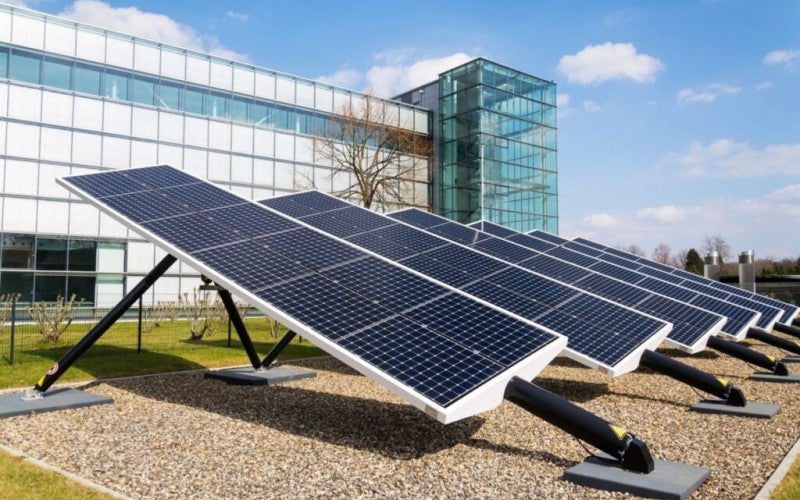
As the world becomes increasingly conscious of the environmental impact of traditional energy sources, more and more people are turning to sustainable solutions like solar power. Solar energy not only helps reduce carbon emissions but also offers significant cost savings in the long run. One of the most common questions among potential solar energy users is whether they can power their air conditioner unit with solar panels. In this blog post, we will explore the feasibility of running an AC with solar power and what factors to consider before making the switch.
1. What To Consider When Using Solar Energy To Power An Air Conditioner Unit
Before you dive into harnessing solar energy to run your air conditioner, there are some essential factors to consider. The first consideration is the energy efficiency of your AC unit. Older models may consume more energy than newer, energy-efficient ones. Upgrading to an energy-efficient air conditioner can significantly impact your solar power requirements.
Additionally, you should assess your daily energy consumption, as this will determine the number of solar panels and storage capacity needed to power your AC efficiently. Another crucial consideration is your geographical location, as it directly affects the amount of sunlight your solar panels can capture. Areas with abundant sunshine will naturally generate more solar energy, making it easier to power an air conditioner.
2. How Do You Know How Much Your Air Conditioner Is Consuming?
To understand your air conditioner's energy consumption, you can refer to the unit's specifications or check its nameplate. Usually, the nameplate displays vital information, including the AC's electrical input, cooling capacity, and energy efficiency rating. Look for the power rating in watts (W) or kilowatts (kW), as this is essential for calculating energy consumption.
If the nameplate information is unavailable, you can use a device called an energy monitor. This handy tool tracks your appliance's power consumption in real-time, giving you accurate data to make informed decisions about your energy usage.
3. How To Calculate The Air Conditioner Energy Consumption
To calculate the energy consumption of your air conditioner, follow these simple steps:
Step 1: Convert the AC's power rating to kilowatts (kW) by dividing the wattage by 1000. For instance, if your AC is rated at 1500 watts, divide 1500 by 1000 to get 1.5 kW.
Step 2: Determine how many hours your AC runs daily. If you're unsure, you can use an energy monitor for a few days to track its usage.
Step 3: Multiply the AC's power rating in kW by the number of hours it operates daily. For example, if your AC is rated at 1.5 kW and runs for 8 hours per day: 1.5 kW * 8 hours = 12 kWh (kilowatt-hours) daily.
4. How Many Solar Panels Are Necessary To Run The Air Conditioner?
The number of solar panels required to power your air conditioner depends on its energy consumption and the amount of solar energy your panels can generate. Solar panels are typically rated in watts peak (Wp) or kilowatts peak (kWp), which indicates the maximum power they can produce under ideal conditions.
To determine the number of solar panels needed, consider the following factors:
a. Sunlight hours: Calculate the average number of sunlight hours in your location per day. This information is usually available from local weather data or solar insolation maps.
b. Solar panel efficiency: Take into account the efficiency of the solar panels you plan to install. Higher efficiency panels will require less space to generate the same amount of power.
c. System losses: Account for system losses due to factors like shading, dust, and wiring inefficiencies. A common estimation is to add 15-25% to your daily energy requirement.
Now, let's walk through a simplified example:
Suppose your air conditioner consumes 12 kWh daily (calculated in Step 3) and your location receives an average of 5 hours of sunlight per day. If you choose solar panels with 300 Wp (0.3 kWp) and 18% efficiency:
Total daily energy needed: 12 kWh + (12 kWh * 0.25) = 15 kWh (accounting for system losses)
Total solar panel capacity needed: 15 kWh / 5 hours = 3 kWp (kW peak)
Using 0.3 kWp panels, you would require approximately 10 solar panels (3 kWp ÷ 0.3 kWp = 10 panels) to run your air conditioner.
Conclusion
In conclusion, powering an air conditioner with solar energy is indeed possible, but it requires careful consideration of your AC unit's energy consumption, the number of sunlight hours in your area, and the efficiency of the solar panels you plan to install. By upgrading to an energy-efficient air conditioner and accurately calculating your energy requirements, you can optimize your solar power system to run your AC efficiently.
Transitioning to solar power not only helps you reduce your carbon footprint but also leads to substantial cost savings in the long term. As technology advances and solar efficiency improves, the dream of a fully solar-powered home, complete with air conditioning, becomes more attainable for environmentally-conscious customers. So, if you're planning to invest in solar energy and embrace a greener lifestyle, don't forget to factor in your air conditioner's needs and make an informed decision that aligns with your energy goals and location. With solar power, keeping cool and caring for the planet go hand in hand!


0 comments